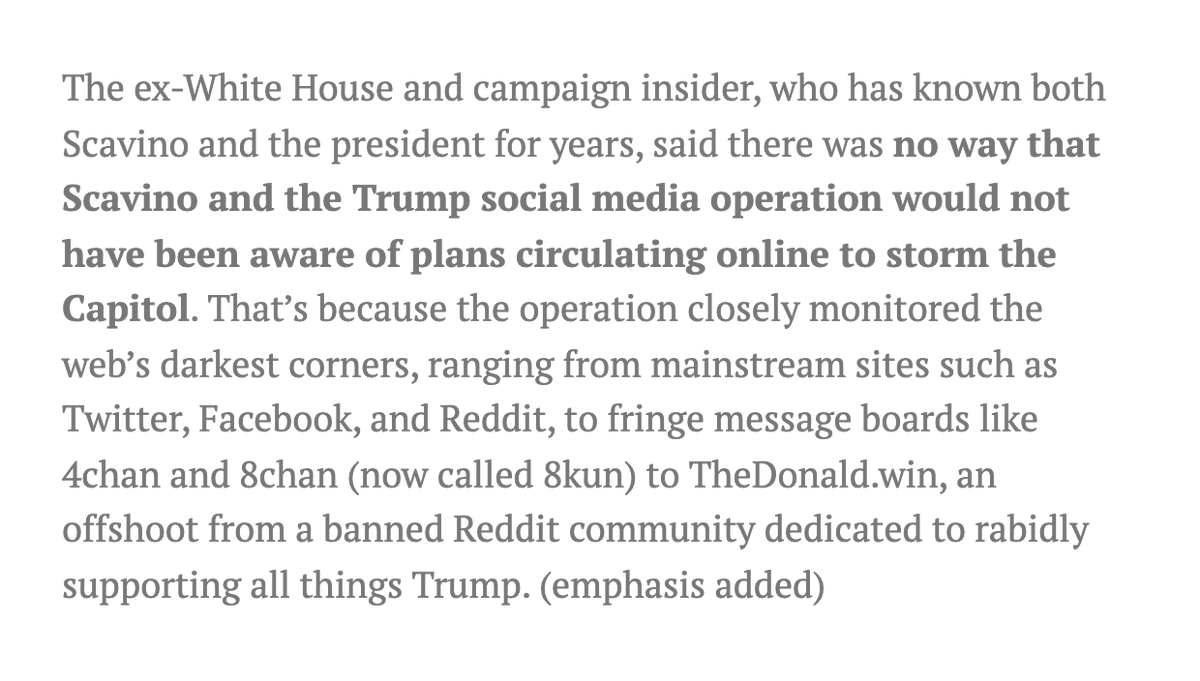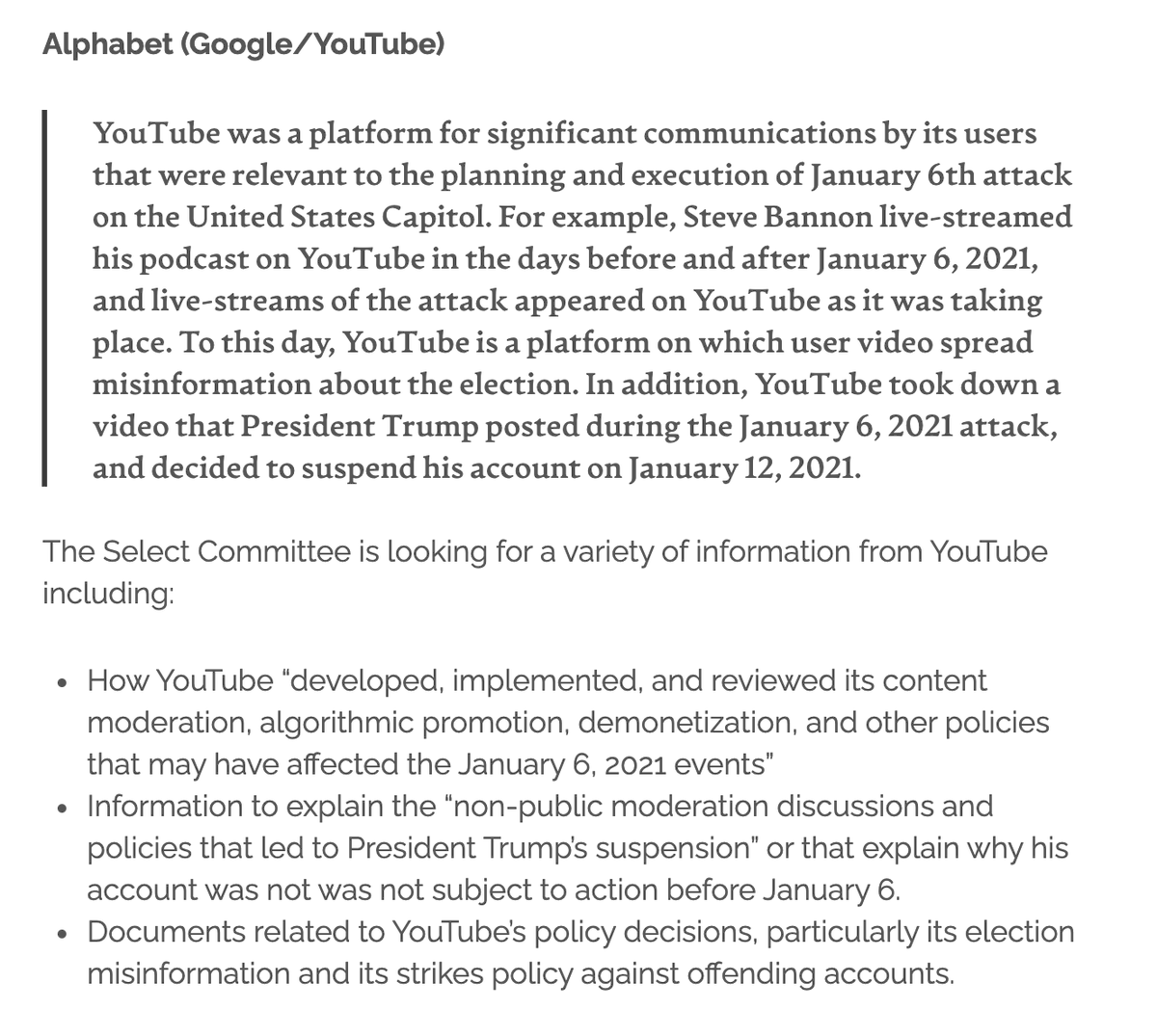
1/ One question inquiries into January 6th seek to answer is the extent to which Donald Trump and his close associates were aware of the potential for violence. On Sunday’s Meet the Press, @RepKinzinger (R-IL), a member of the House Select Committee, raised this line of inquiry: 

2/ In @just_security, I suggest a potentially fruitful indicator of Trump’s awareness of the detailed planning for violent assaults on the Capitol is what he and his closest aides knew about the discourse on a public message board: TheDonald[.]win. justsecurity.org/79813/thedonal…
@just_security 3/ To understand the likelihood that such communications were known to the Trump team, and how that knowledge might be proven, it is important to understand the history of The Donald, and how Donald Trump, his campaigns, and advisors interacted with it:
justsecurity.org/79813/thedonal…
justsecurity.org/79813/thedonal…
@just_security 4/ In the piece, I chronicle what is publicly known about how key Trump aides- including Dan Scavino- engaged with the site and its moderators. 

@just_security 5/ And I include incidents in the runup to the 2020 election and in the period afterward where Trump’s Twitter account amplified content posted on The Donald, according to material gathered by the nonprofit nonpartisan research organization @AdvDemocracy . justsecurity.org/79813/thedonal…
@just_security @AdvDemocracy 6. Recall @AndrewFeinberg's reporting that "White House insiders say Trump knew what was about to happen at the Capitol — because of his social media guru Dan Scavino": 

7/ And I reference Michael C. Bender's account of an Oval Office meeting on January 5 that Scavino attended where Trump seems to indicate an awareness of the kinetic potential among his supporters:
https://twitter.com/MichaelCBender/status/1481272037264044033?s=20
8/ I conclude with 5 questions investigators and reporters should be asking with regard to The Donald and January 6: 

• • •
Missing some Tweet in this thread? You can try to
force a refresh





